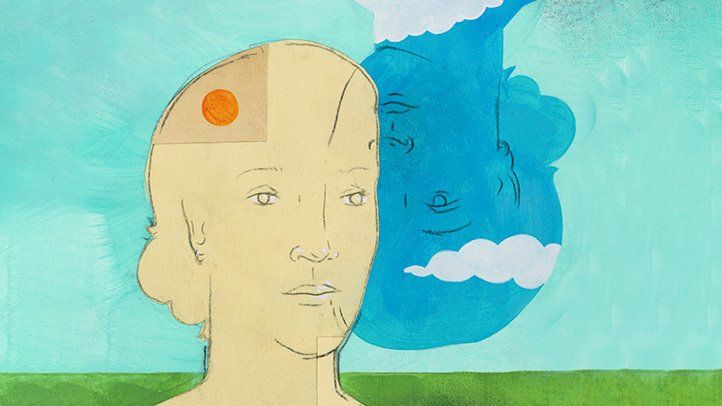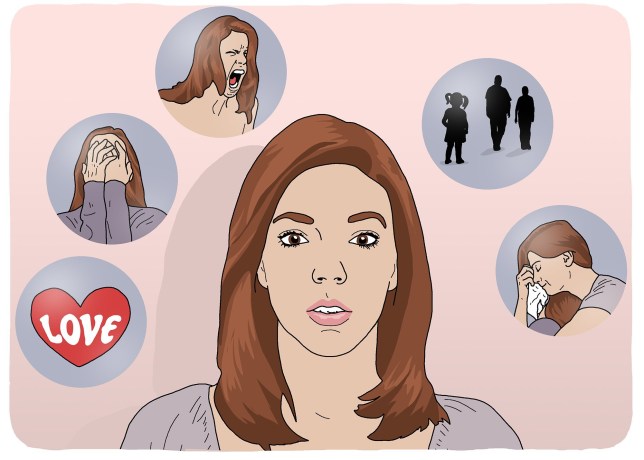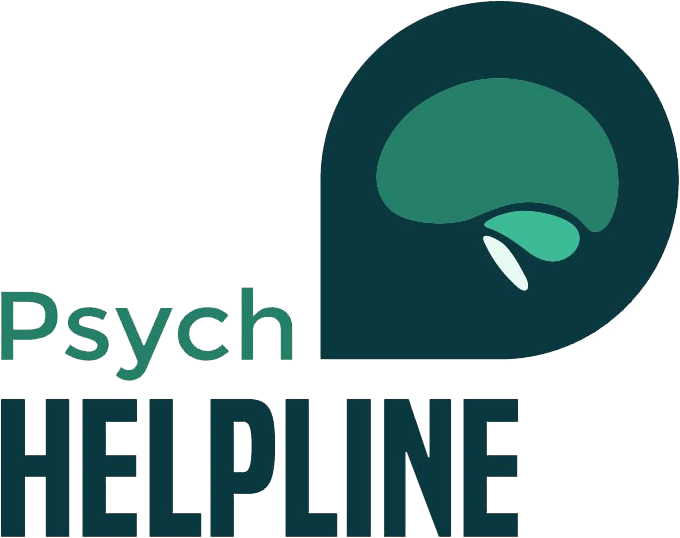Table of Contents
If you are suffering from BPD and everything feels unstable including your relations, thinking, moods, behavior, and even your identity. But there is hope and this will guide you to symptoms, treatment, and recovery that can help.
What do you need to know about BPD?
A borderline personality disorder is a disorder of mental health that affects your thinking and the way you feel about yourself and others. It can also be the reason for problems functioning in everyday life including difficulty in managing emotions, self-image issues, and a pattern of unstable relationships.
If you are suffering from Borderline Personality Disorder (BPD) and you feel like you are in a rollercoaster and not only because of your unsteady relationships and emotions but also the sense of who you are. You feel changes in your likes and dislikes, in your self-image, and even in your goals.
Borderline Personality Disorder (BPD) is a disorder of mood and how a person interrelates with others. This disorder is the most recognized personality disorder.
In general, someone who has a personality disorder will act differently from a normal person about how he or she thinks, feels, perceives or relates to others. People who are suffering from BPD have high levels of distress and anger. They can easily take offense at things other people do or say.
BPD is the state of the brain and mind. If someone has BPD, it is not their fault and they did not cause it.

Do I have Borderline Personality Disorder (BPD)?
People who are suffering from BPD can experience mood swings and can feel a great sense of humility and uncertainty. You can diagnose BPD if you experience the following things and they have lasted for a long time or have a strong effect on your daily routine:
- You have very high sensations that last from a few hours to a few days and can change quickly for example, from feeling assured and happy to suddenly feeling sad and low.
- You find it difficult to make and keep firm relationships.
- You can feel insecure about yourself, not really knowing who you are or what to think about yourself.
- You experience a constant feeling of being empty inside.
- When you feel stressed you become highly doubtful of others and you experience unusual feelings of being uninvolved from their own emotions, body, or surroundings.
According to DCM-5, people suffering from BPD express some symptoms like:
- Repetitive suicidal behavior.
- Stress-related fearful thinking or detachment.
- Dreadful feelings of boredom and emptiness.
- Extreme, unsuitable, and uncontrollable anger that frequently followed by anger and guilt.
- When distressed, you may also experience paranoia and detachment.
- Fear of betrayal.
The symptoms of a personality disorder may range from humane to rough and usually emerge in puberty, persisting into maturity.
People suffering from BPD often have highly unsteady patterns of social relationships. While they can develop severe but stormy attachments and their behavior towards their family, loved ones and friends may shift from idealization to devaluation. Thus, they can also form an instant attachment and idealize another person but whenever a little partition occurs, they switch quickly to another extreme and angrily accuse the other person of being careless.
Causes:
These were the symptoms of BPD. Now the question is if you have BPD, what causes you to be a patient of BPD? It is important to know the causes.
Although the cause of BPD is obscure, both genetic factors and environmental factors are thought to play a role in leading people to BPD. The causes of BPD are not fully understood but scientist agrees that it is the result of a mixture of factors that includes:
- Genetic factors
- Environmental factors.
Genetics:
While uncertain gene has been shown to directly cause BPD. Research suggests that people who are suffering from BPD and are closed to their family may be at a higher risk of developing this disorder.
Environmental factor:
People who experience hurtful life events such as sexual or physical abuse during childhood or mistreatment and separation from parents are at high risk of developing BPD.
For a person who is naturally sensitive, life problems during early adulthood might be damaging. These problems could include disappointment and having another mental health condition.

Is there any Risk Factor?
Yes, we have read in this article that genetic and environmental factors can be the reasons for developing BPD. So, it is obvious to have risks if we live in a stressful environment.
Some elements that are related to personality development can increase the risk of developing a borderline personality disorder. That includes,
-
Hereditary predisposition.
-
Stressful childhood.
In Hereditary predisposition, you may be at extreme risk if your close relative, your mother, father, brother or sister has the same or a similar disorder.
In Stressful childhood, many people suffering from a disorder report being sexually or physically abused or mistreated during childhood. Some people have separated from their parents when they were young or had parents with substance misuse or other mental health issues.
Complications:
We face many complications in BPD like it can harm many areas of your life. It can have a negative impact on relationships, jobs, school, social activities, and self-image, resulting in:
- Diverse legal issues like jail time.
- Frequent job changes.
- Losses.
- Uncompleted education.
- Squabble relationships, divorce or marital stress.
- Participation in abusive relationships.
- Attempted or completed suicide.

You may also have other mental health disorders, such as:
- Eating disorders.
- Depression.
- Bipolar disorder.
- Alcohol or another substance misuse.
- Anxiety disorder.
- Post-traumatic stress disorder.
- Other personality disorders.
When and how to see a doctor?
If you are aware that you have symptoms or any signs, talk to your doctor or a mental health provider. It is good to see your doctor the sooner you notice symptoms and get help in getting a correct diagnosis, effective treatment and help to manage your problems.
Almost 1 in 4 people can experience mental illness in their life. But it is obviously curable and there are lots of ways to get help.
Go to a hospital emergency department.
At the emergency department, you can get an immediate checkup by an emergency doctor. Then, if needed, you can talk to another psychiatrist or mental health professional.
Find a mental health crisis team.
Mental health crisis teams also known as crisis and assessment teams. They provide urgent treatment and support for people who are suffering from a mental health crisis. Treatment is usually in your home.
If it is not urgent:
Do you feel that something bad is happening? Something is not going, right?
Are you:
- Feeling troubled.
- Feeling depressed or sad.
- Sleeping a lot/less.
- Eating a lot/less.
- Using alcohol or drugs to survive.
- Feeling very irritable.
- Not wanting to see other people.
You can have a bad week. But if the symptoms are severe or if they go on for a long time you should seek help.
If you are:
- Hurting yourself on purpose.
- Hallucinations.
- Behaving in a very unusual way.
There are some more symptoms you should get help with right away.
See your family doctor
Seeing your family doctor is a good first step if you are worried. A GP (family doctor) can help you with what is happening around you and how to deal with it.
It is not easy to bring up mental health issues at an appointment, but remember you are not alone. In fact, depression is one of the most common illnesses your family doctor can treat.
Try counseling services.
Try to speak to your counselor via phone calls, online or in person. There are 24 hours free services available. You will speak to someone who will understand what you are going through.
Online services and support
There are several websites that give information and advice if you are experiencing a mental health issue.
How is Borderline Personality Disorder treated?
Talking therapies are the best way to treat BPD. These treatments normally involve discussions with a health professional one-to-one or sometimes attending special groups.
The recommended treatment for BPD includes psychotherapy, medication, and family support. Psychotherapy is the first-line treatment for BPD and various forms of therapy like dialectical behavioral therapy (DBT). Mentalization-based therapy (MBT), Cognitive behavioral therapy (CBT), and psychodynamic psychotherapy have been studied and are effective.
With treatment, most people suffering from BPD can get recovery of their symptoms at least some of the time. If someone recovers, there is a good chance that they will not develop symptoms again. Many people get a good work-life and social life. Some people still have some problems with their social and work life, even though their symptoms have improved.
An effective treatment plan should include your partiality while also addressing any other co-existing conditions you can have.
Examples include:
- Psychotherapy.
- Medication.
In medication, It may be helpful to a treatment plan, but there is not only one medication that can cure the BPD. Rather various medications can be used off-label to treat different symptoms. For example, mood booster, antidepressants help with mood swings and dysphoria.
In psychotherapy is the first line of choice for BPD. Learning ways to survive with disturbance in a therapeutic setting is often the key to constant improvement or those who are experiencing BPD.
Related conditions
BPD can be tough to diagnose and treat as well. Successful treatment includes addressing any other states a person might have. Many people suffering from BPD also experience additional conditions like,
- Posttraumatic stress disorder.
- Anxiety disorder.
- Bipolar disorder.
- Eating disorder.
- Dual diagnosis.
Borderline Personality Disorder (BPD) is a challenge to treat not only because it is complexed and stigmatized but also because its symptoms reflect fixed patterns of thinking and behavior. Many patients suffering from BPD also have other mental health problems like mood disorder or post-traumatic stress disorder.
Drugs can be supportive at reducing symptoms such as depression or anxiety, but they do not address central personality traits and behaviors.
Recent research shows that treatment can decrease the symptoms and sufferings of people with BPD.
Some BPD symptoms are easier to treat than others. Fears that others might leave, acute, unsteady relationships, and feeling emptiness are usually hardest to change. Research shows that treatment is more potent in decreasing anger, self-harm, and suicide attempts.
Self-care activities can also help in the treatment of BPD.

Self-care activities include regular exercise, good sleep habit, nutritious diet, taking medications as your doctor or therapist have prescribed and healthy stress management. Good self-care can help you in reducing common symptoms of BPD like mood changes, impulsive behavior, and irritability.
Goals of treatment
For many people with BPD, here are some goals they need to follow,
- To control emotional problems such as depression, anxiety, and anger.
- To raise better relationships.
- To find a good purpose in life like making a positive contribution to their community.
- To learn how to understand and live with yourself.
- To improve physical health.
When should treatment start?
Early treatment is best for people who are suffering from BPD. It is important to diagnose it in its initial stages so that the health professional like your family doctor, psychiatrist, or clinical psychologist can organize the right person.
Even if you are not sure about the diagnosis, you can still start the treatment. Many psychological treatments that are effective for BPD can also be useful for other mental health conditions.
Young people, including teenagers, can have BPD and can start treatment as soon as they diagnose it.
Looking after yourself/ conclusion
Taking care of someone who is suffering from BPD can be exhausting both physically and emotionally. If someone close to you is suffering from BPD, does not mean you are not a good parent, partner, brother or sister.
You will feel pain, suffering, guilt, sadness, or despair of your own. Being a support person can be hard work and it may sometimes feel that you are getting nowhere.
Never blame yourself. You are not alone.






